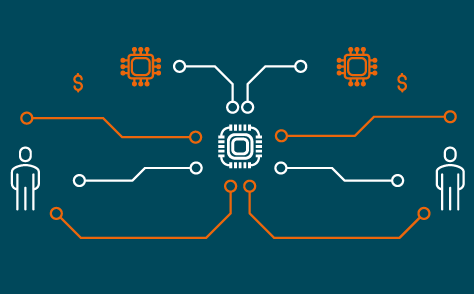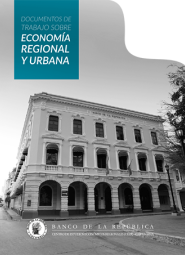The Effect of Adult Criminals’ Spillovers on the Likelihood of Youths Becoming Criminals
La serie Borradores de Economía es una publicación de la Subgerencia de Estudios Económicos del Banco de la República. Los trabajos son de carácter provisional, las opiniones y posibles errores son responsabilidad exclusiva del autor y sus contenidos no comprometen al Banco de la República ni a su Junta Directiva.
We use a unique data set at the individual level to estimate an empirical model explaining the probability of young individuals to become criminals as a function of the presence of adult criminals in their neighborhoods, an a complete set of control variables, including census sector fixed effects. We use the census of criminals captured in Medellín between 2000 and 2010 to construct our peer’s variables, and find a strong and robust positive effect of the presence of adult criminal neighbors on the probability of becoming criminal. The result is robust across different specifications of the presence of criminals, and with respect to the probability of committing different types of crimes, even controlling for contextual and group effects. Both modeling peer effects as the sum of friends’ efforts and modeling them as deviations from the means, affect the likelihood to become criminal, although with differential importance by type of crime.
The opinions expressed here are those of the authors and not of the Banco de la República de Colombia nor of its Board.

















































